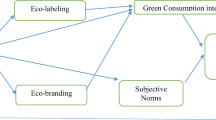Abstract
Platform business like Airbnb has transformed the social interaction within consumption practices from a conventional form to a contemporary form (e.g., Peer-to-Peer). Peer-to-Peer (P2P) accommodations have taken guests away from traditional hotels and affected the competitive market of accommodation services. Considering the rising trend, it is critical to recognize which service and lodging attributes influence consumers to choose Airbnb over hotels, and if consumers perceive P2P accommodations in the same aspect as hotels. Lodging attributes are important determinants that affect consumers’ accommodation selection, perception of service quality, satisfaction, and future behavior intentions. Thus, the current study is to examine the attributes that guests consider important and to verify their similarities and differences with hotel attributes is of strategic importance to both hotels and Airbnb. The results show that travelers’ perceived importance of the six lodging attributes significantly affects their overall perceived service quality of their preferred lodging type between non-P2P and P2P lodging. Moreover, the overall perceived service quality of the lodging significantly affects travelers’ satisfaction with the six lodging attributes.

Similar content being viewed by others
References
Albayrak, T., and M. Caber. 2015. Prioritisation of the hotel attributes according to their influence on satisfaction: A comparison of two techniques. Tourism Management 46: 43–50.
Ali, F., K. Hussain, R. Konar, and H. Jeon. 2017. The effect of technical and functional quality on guests’ perceived hotel service quality and satisfaction: A SEM-PLS Analysis. Journal of Quality Assurance in Hospitality and Tourism 18 (3): 354–378.
Belk, R. 2014. You are what you can access: Sharing and collaborative consumption online. Journal of Business Research 67 (8): 1595–1600.
Brady, M.K., and J.J. Cronin. 2001. Some new thoughts on conceptualizing perceived service quality: A hierarchical approach. Journal of Marketing 65 (3): 34–49.
Camilleri, J., and B. Neuhofer. 2017. Value co-creation and co-destruction in the Airbnb sharing economy. International Journal of Contemporary Hospitality Management 29 (9): 2322–2340.
Chen, C., and Y. Chang. 2018. What drives purchase intention on Airbnb? Perspectives on consumer reviews, information quality, and media richness. Telematics and Informatics 35 (5): 1512–1523.
Cheng, M., and X. Jin. 2019. What do Airbnb users care about? An analysis of online review. International Journal of Hospitality Management 76: 58–70.
Christensen, C.M. 2006. The ongoing process of building a theory of disruption. Journal of Product Innovation Management 23 (1): 39–55.
Product Innovation Management 23(1): 39–55.
Cronin, J.J., M.K. Brady, and G.T.M. Hult. 2000. Assessing the effects of quality, value and customer satisfaction on consumer behavioral intentions in service environments. Journal of Retailing 76 (2): 193–218.
Cronin, J.J., and S.A. Taylor. 1992. Measuring service quality: A reexamination and extension. Journal of Marketing 56 (3): 55–68.
Davis, F.D. 1989. Perceived usefulness, perceived ease of use, and user acceptance ofinformation technology. MIS Quarterly 13 (3): 319–339.
Ert, E., A. Fleischer, and N. Magen. 2016. Trust and reputation in the sharing economy: The role of personal photos in Airbnb. Tourism Management 55: 62–73.
Getty, J.M., and R.L. Getty. 2003. Lodging quality index (LQI): Assessing customers’ perceptions of quality delivery. International Journal of Contemporary Hospitality Management 15 (2): 94–104.
Guttentag, D. 2015. Airbnb: Disruptive innovation and the rise of an informal tourism accommodation sector. Current Issues in Tourism 18 (12): 1192–1217.
Guttentag, D., and S. Smith. 2017. Assessing Airbnb as a disruptive innovation relative to hotels: Substitution and comparative performance expectations. International Journal of Hospitality Management 64: 1–10.
Guttentag, D., S. Smith, L. Potwarka, and M. Havitz. 2018. Why tourists choose Airbnb: A motivation-based segmentation study. Journal of Travel Research 57 (3): 342–359.
Ha, J., and S.S.C. Jang. 2010. Effects of service quality and food quality: The moderating role of atmospherics in an ethnic restaurant segment. International Journal of Hospitality Management 29 (1): 520–529.
Han, H., and S.S. Hyun. 2018. Role of motivations for luxury cruise traveling, satisfaction, and involvement in building traveler loyalty. International Journal of Hospitality Management 70: 75–84.
Han, H., H.N. Nguyen, H. Song, B. Chua, S. Lee, and W. Kim. 2018. Drivers of brand loyalty in the chain coffee shop industry. International Journal of Hospitality Management 72: 86–97.
Hair, J.F., C.M. Ringle, and M. Sarstedt. 2012. Partial least squares: The better approach to structural equation modeling? Long Range Planning 45(5–6): 312–319.
Hair, Jr, J.F., M. Sarstedt, L. Hopkins, and V.G. Kuppelwieser. 2014. Partial least squares structural equation modeling (PLS-SEM): An emerging tool in business research. European Business Review 26(2): 106–121. https://doi.org/10.1108/EBR-10-2013-0128
Jani, D., and H. Han. 2014. Personality, satisfaction, image, ambience, and loyalty: Testing their relationships in the hotel industry. International Journal of Hospitality Management 37: 11–20.
Ju Y, Back KJ, Choi Y, Lee JS (2019) Exploring Airbnb service quality attributes and their asymmetric effects on customer satisfaction. International Journal of Hospitality Management 77: 342–352.
Knutson, B., P. Stevens, M. Patton, and F. Yokoyama. 1990. Lodgserv: A service quality index for the Lodging Industry. Hospitality Research Journal 14 (2): 277–284.
Kotler, P., J.T. Bowen, J.C. Makens, and S. Baloglu. 2016. Marketing for hospitality and tourism, 7th ed. Boston: Pearson.
Kumar, V., and D. Shah. 2004. Building and sustaining profitable customer loyalty for the 21st century. Journal of Retailing 80 (4): 317–330.
Lai, I.K.W. 2015. The roles of value, satisfaction, and commitment in the effect of service quality on customer loyalty in Hong Kong-style tea restaurants. Cornell Hospitality Quarterly 56 (1): 118–138.
Lam, S.Y., V. Shankar, M.K. Erramilli, and B. Murthy. 2004. Customer value, satisfaction, loyalty, and switching costs: An illustration from a business-to-business service context. Journal of the Academy of Marketing Science 32 (3): 293–311.
Liang, S., M. Schuckert, R. Law, and C. Chen. 2017. Be a “Superhost”: The importance of badge systems for peer-to-peer rental accommodations. Tourism Management 60: 454–465.
Moon, H., L. Miao, L. Hanks, and N.D. Line. 2019. Peer-to-peer interactions: Perspectives of Airbnb guests and hosts. International Journal of Hospitality Management 77: 405–414.
Nam, J., Y. Ekinci, and G. Whyatt. 2011. Brand equity, brand loyalty and consumer satisfaction. Annals of Tourism Research 38 (3): 1009–1030.
Oliver, R.L. 1977. Effect of expectation and disconfirmation on post-exposure product evaluations: An alternative interpretation. Journal of Applied Psychology 62 (4): 480–486.
Oliver, R.L. 1980. A cognitive model of the antecedents and consequences of satisfaction decisions. Journal of Marketing Research 17 (4): 460–469.
Oliver, R.L. 1999. Whence consumer loyalty? Journal of Marketing 63 (4): 33–44.
Parasuraman, A., V.A. Zeithaml, and L. Berry. 1988. SERVQUAL: A multiple-item scale for measuring consumer perceptions of service quality. Journal of Retailing 64 (1): 12–40.
Petrick, J.F. 2004. Are loyal visitors desired visitors? Tourism Management 25 (4): 463–470.
Ringle, C.M., S. Wende and J.M. Becker. 2015. SmartPLS 3. Boenningstedt: SmartPLS. Retrieved from https://www.smartpls.com.
Shulga, L., and S. Tanford. 2018. Measuring perceptions of fairness of loyalty program members. Journal of Hospitality Marketing & Management 27 (3): 346–365.
So, K.K., H. Oh, and S. Min. 2018. Motivations and constraints of Airbnb consumers: Findings from a mixed-methods approach. Tourism Management 67: 224–236.
Tanford, S. 2016. Antecedents and outcomes of hospitality loyalty: A meta-analysis. Cornell Hospitality Quarterly 57 (2): 122–137.
Tsai, H., C.H.C. Hsu, and L.Y. Lee. 2017. A casino-induced satisfaction of needs: Scale development and its relationship with casino customer loyalty. Journal of Travel & Tourism Marketing 34 (7): 986–1000.
Tussyadiah, I.P. 2016. Factors of satisfaction and intention to use peer-to-peer accommodation. International Journal of Hospitality Management 55: 70–80.
Tussyadiah, I.P., and J. Pesonen. 2016. Impacts of peer-to-peer accommodation use on travel patterns. Impacts of Peer-to-Peer Accommodation Use on Travel 55 (8): 1022–1040.
Tussyadiah, I.P. & F. Zach, F. 2015. Hotels vs. Peer-to-Peer accommodation rentals: Text analytics of consumer reviews in Portland, Oregon. https://scholarworks.umass.edu/ttra/ttra2015/Academic_Papers_Oral/2. Accessed 12 December 2018.
Wang, C., and M. Jeong. 2018. What makes you choose Airbnb again? An examination of users’ perception toward the website and their stay. International Journal of Hospitality Management 74: 162–170.
Wang, D., and J.L. Nicolau. 2017. Price determinants of sharing economy based accommodation rental: A study of listings from 33 cities on Airbnb.com. International Journal of Hospitality Management 62: 120–131.
Yoo, M., O. Berezan, and A.S. Krishen. 2018. Do members want the bells and whistles? Understanding the effect of direct and partner benefits in hotel loyalty programs. Journal of Travel & Tourism Marketing 35 (8): 1058–1070.
Yoo, B., and N. Donthu. 2001. Developing a scale to measure the perceived quality of an internet shopping site (SITEQUAL). Quarterly Journal of Electronic Commerce 2 (1): 31–45.
Yoon, S. (2017) Transitions of trust across different business context: impact of the sharing economy on the lodging industry. Doctoral dissertation, University of Nevada Las Vegas, Las Vegas, NV.
Yoon, Y., and M. Uysal. 2005. An examination of the effects of motivation and satisfaction on destination loyalty: A structural model. Tourism Management 26 (1): 45–56.
Zeithaml, V.A., and M.J. Bitner. 2003. Services marketing: Integrating customer focus across the firm. New York: McGraw-Hill.
Zervas, G., D. Proserpio, and J.W. Byers. 2017. The rise of the sharing economy: Estimating the impact of Airbnb on the hotel industry. Journal of Marketing Research 54 (5): 687–705.
Author information
Authors and Affiliations
Corresponding author
Additional information
Publisher's Note
Springer Nature remains neutral with regard to jurisdictional claims in published maps and institutional affiliations.
Rights and permissions
About this article
Cite this article
Yoo, M., Yoon, S. The six lodging attributes that determine travelers’ preference on Airbnb or hotel. J Market Anal 10, 299–310 (2022). https://doi.org/10.1057/s41270-022-00183-6
Revised:
Accepted:
Published:
Issue Date:
DOI: https://doi.org/10.1057/s41270-022-00183-6




